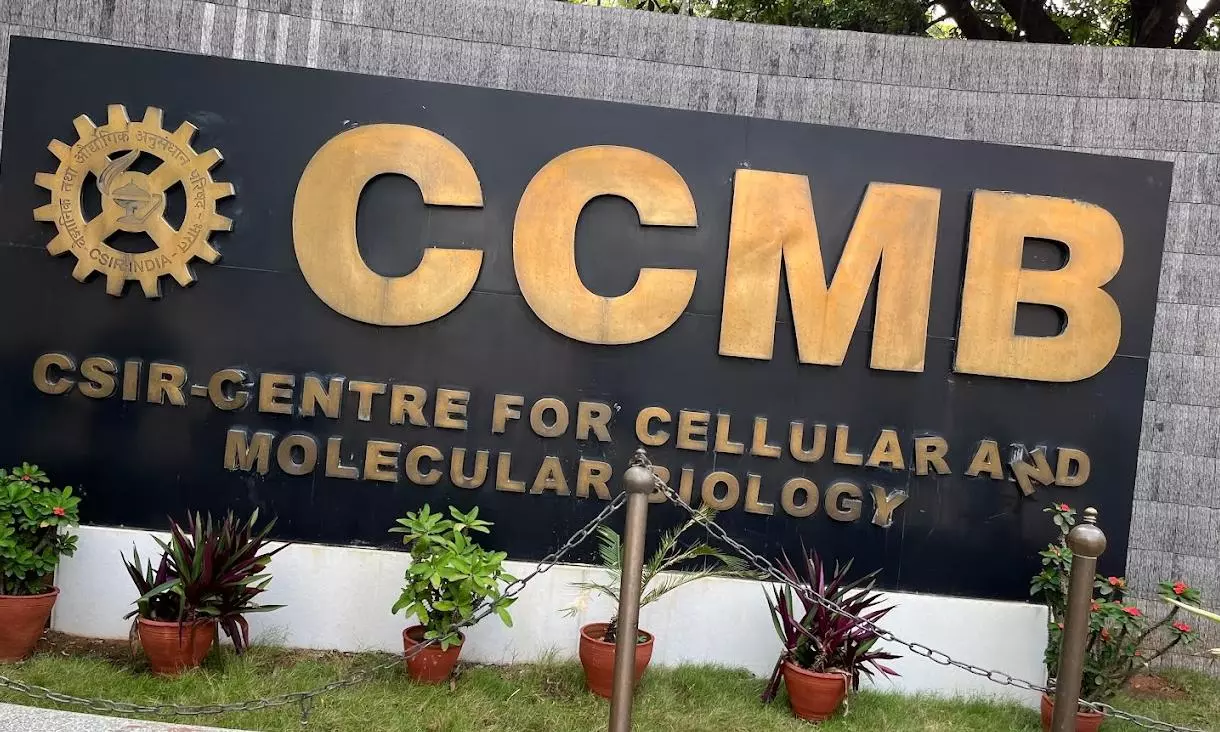Science
Cells Discover Phoenix-Like Ability to Heal Themselves

A recent study by the **CSIR-Centre for Cellular and Molecular Biology (CCMB)** has unveiled a remarkable discovery: cells may possess a natural ability to recover from near-death states and expedite the healing of damaged tissues. A research team led by **Dr. Santosh Chauhan** identified a process termed **Programmed Cell Revival**, through which dying cells can reactivate their functions by re-engaging developmental, metabolic, and immune pathways.
The researchers demonstrated this phenomenon in several species. In their experiments, they noted that skin wounds and corneal burns in mice showed accelerated healing. Additionally, frog tadpoles experienced stimulated tail regeneration, nerve repair improved in worms, and blood stem cell production increased in fruit flies. The results of this groundbreaking research were published in the **EMBO Journal**.
Dr. Chauhan emphasized the significance of the findings, stating, “This is not just accidental survival. We found that many organisms share a deeply programmed ability to bring cells back to life. It changes how we think about life, death, and healing.” This discovery not only offers new insights into cellular biology but also introduces potential implications for regenerative medicine.
Implications for Regenerative Medicine and Cancer Research
While the potential for applying this knowledge in regenerative medicine is enormous, it also raises significant concerns, particularly regarding cancer therapies. Many existing treatments operate under the assumption that dying cancer cells are irreversibly lost. The ability of cells to “revive” has the potential to lead to drug resistance or more aggressive tumor growth, challenging current approaches in the field.
The research team recognizes the dual-edged nature of their discovery. On one hand, the ability to stimulate tissue repair and regeneration opens new avenues for medical advancements. On the other, it necessitates a careful reconsideration of treatment strategies in oncology.
To protect their findings, the researchers have filed for both **Indian** and **international patents**, reflecting their belief that this discovery marks only the beginning of a new chapter in cell biology.
As the scientific community continues to explore these developments, the implications for health and medicine could be profound. The potential to harness the body’s own mechanisms for healing may redefine how we approach tissue regeneration and cancer treatment in the future.
-

 World5 months ago
World5 months agoSBI Announces QIP Floor Price at ₹811.05 Per Share
-

 Lifestyle5 months ago
Lifestyle5 months agoCept Unveils ₹3.1 Crore Urban Mobility Plan for Sustainable Growth
-

 Science4 months ago
Science4 months agoNew Blood Group Discovered in South Indian Woman at Rotary Centre
-

 World5 months ago
World5 months agoTorrential Rains Cause Flash Flooding in New York and New Jersey
-

 Top Stories5 months ago
Top Stories5 months agoKonkani Cultural Organisation to Host Pearl Jubilee in Abu Dhabi
-

 Sports4 months ago
Sports4 months agoBroad Advocates for Bowling Change Ahead of Final Test Against India
-

 Science5 months ago
Science5 months agoNothing Headphone 1 Review: A Bold Contender in Audio Design
-

 Top Stories5 months ago
Top Stories5 months agoAir India Crash Investigation Highlights Boeing Fuel Switch Concerns
-

 Business5 months ago
Business5 months agoIndian Stock Market Rebounds: Sensex and Nifty Rise After Four-Day Decline
-

 Sports4 months ago
Sports4 months agoCristian Totti Retires at 19: Pressure of Fame Takes Toll
-

 Politics5 months ago
Politics5 months agoAbandoned Doberman Finds New Home After Journey to Prague
-

 Top Stories5 months ago
Top Stories5 months agoPatna Bank Manager Abhishek Varun Found Dead in Well









